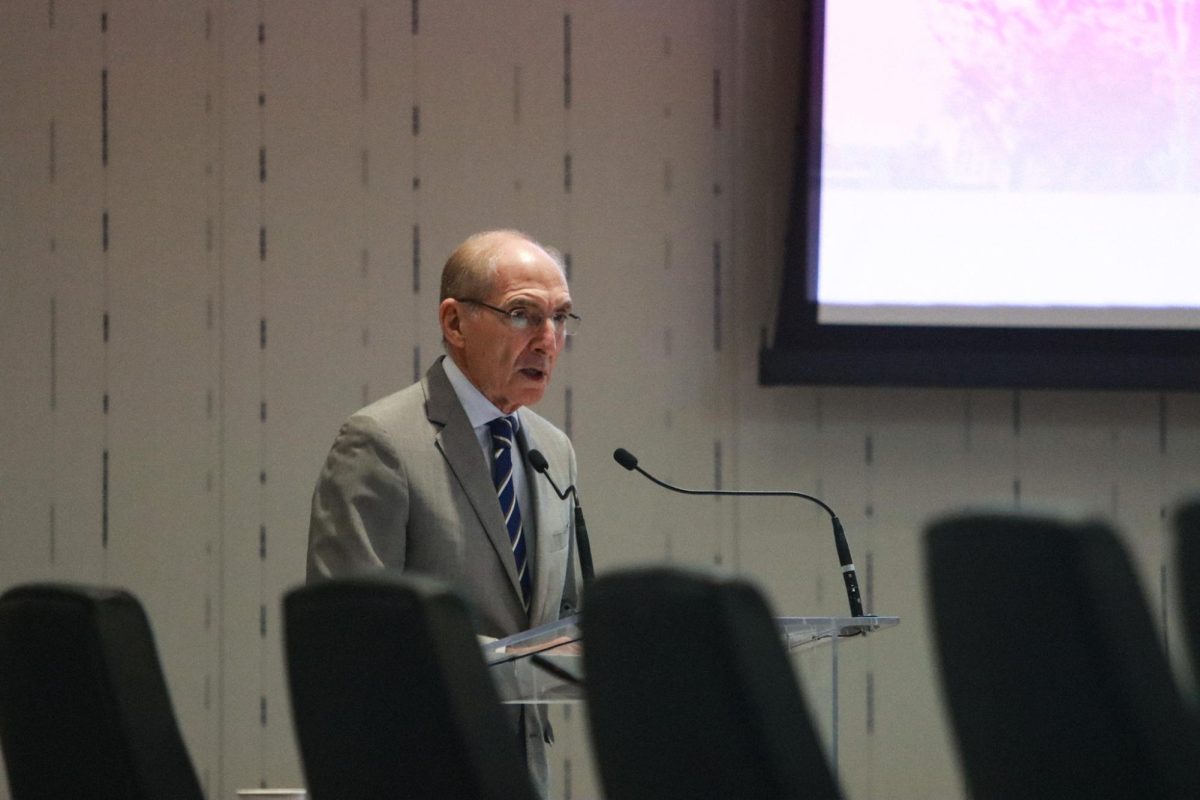UK hosts clinical trial for newly FDA approved Alzheimer’s drug
Researchers at the Sanders-Brown Center on Aging have been studying a newly FDA approved Alzheimer’s drug. Photo by Carter Skaggs | Staff
February 10, 2023
The University of Kentucky is at the forefront of a groundbreaking study that could change the way Alzheimer’s disease is treated.
The AHEAD Study is a clinical trial that studies the effects of lecanemab, a promising drug which just recently received an accelerated approval from the FDA on Jan. 6, 2023. UK is one site participating in the AHEAD study.
Dr. Greg Jicha, director of clinical trials at UK’s Sanders-Brown Center on Aging, explained how the recently approved drug works.
Lecanemab targets amyloid plaques that form in the brain. Amyloid plaques are a build-up of amyloid beta protein that occur in the brain. These plaques become toxic to the brain and start to kill and injure nerve cells, which then leads to memory loss, Jicha said.
The formation of these plaques is necessary for Alzheimer’s to develop. However one-third of seniors over the age of 65 with normal memory and cognition already have amyloid buildup in the brain, Jicha said. This is where the AHEAD Study comes in.
The AHEAD Study tests the effects of lecanemab on those who don’t show signs of memory problems yet but do have amyloid plaques present in the brain. Alexndra Curtis, clinical trials research manager at the Sanders-Brown Center, said UK was the first trial site to enroll a patient.
Jicha said according to research conducted by the New England Journal of Medicine, lecanemab shows a 27% slowing in memory and thinking decline and a 40% slowing of loss of functional abilities.
Medication for Alzheimer’s has been around for decades, but these medications treat the symptoms of Alzheimer’s, not the cause. Lecanemab is the first drug of its kind to target the disease itself.
“It’s like using a cough drop for COVID,” Jicha said. “It’ll make you feel better, but it won’t do anything about the COVID.”
The AHEAD Study hopes to answer questions about how amyloid plaques affect the brain and if the onset of Alzheimer’s could be delayed if the plaques are removed early enough.
Although results are promising, the research conducted by the AHEAD Study is going to take years. The AHEAD Study is in the middle of recruitment and will be looking for participants for at least the next year.
The research and effects of lecanemab are just “the first crack in the iceberg,” according to Jicha.
“With this we expect, as experts in the field, an acceleration of other drug discovery to the point where one day we’re going to make an even larger impact and hopefully the day will come where Alzheimer’s is no more,” Jicha said. “It’s going to take a lot of time and a lot of work, but this is fundamentally the start of that process.”





























































































































































